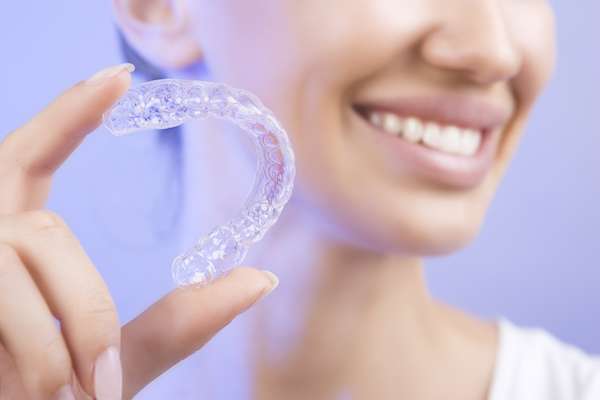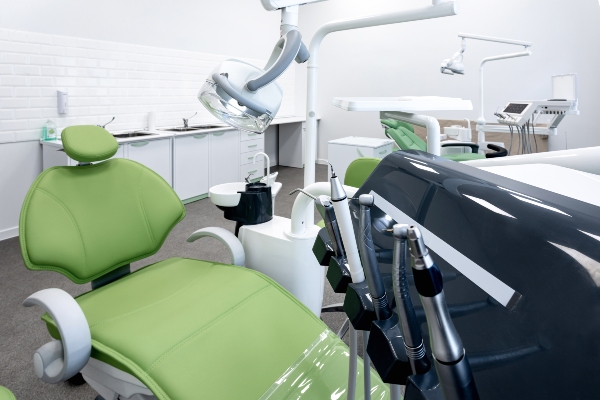 Having crooked teeth or an improper bite can affect a person’s dental health and smile, but an Invisalign® dentist can help patients achieve a straighter smile for years to come. Before beginning, patients first have a consultation with a dentist to learn more about the process. Asking questions is important for allowing patients to feel confident going into the treatment.
Having crooked teeth or an improper bite can affect a person’s dental health and smile, but an Invisalign® dentist can help patients achieve a straighter smile for years to come. Before beginning, patients first have a consultation with a dentist to learn more about the process. Asking questions is important for allowing patients to feel confident going into the treatment.
Frequently asked questions regarding the Invisalign® treatment process
For patients considering Invisalign®, it can be daunting trying to decide if this is the right solution for their unique situation. Learn the answers to several common questions patients have about clear aligners.
Who is a good candidate for treatment?
Generally, Invisalign® is only recommended for older teens and adults who have the lifestyle and discipline to wear the aligners as instructed. While a good solution for many types of common alignment and bite issues, there are certain limits to what conditions this treatment option can complete. If interested, patients should consult with an Invisalign® dentist who can examine the mouth and determine if the case can be addressed with aligners.
Are Invisalign® braces noticeable?
When comparing options for addressing misalignment of the teeth, Invisalign® is one of the most inconspicuous alternatives available to patients. Unlike traditional braces that most often require metal brackets and wires to be placed on the teeth with flashy rubber bands, clear aligners fit snugly over the patient’s teeth and are hardly noticeable when worn.
Are there any eating restrictions?
One major advantage of Invisalign® is that patients can easily remove the aligners at any time, making any diet changes unnecessary. It is recommended to always take the trays out when consuming any food or beverage that is not water. Brushing and flossing the teeth after meals can help keep the trays from staining or getting sullied.
How successful is Invisalign®?
For people with treatable cases, clear aligners are often an effective means of adjusting the position of the teeth and jaw. However, the success of treatment relies heavily on how compliant the patient is with following the guidelines. Unlike regular braces that are fixed onto a person’s teeth at all times, it can be tempting to remove Invisalign® whenever the teeth are uncomfortable. Additionally, people may misplace the aligners or forget to put the trays back on after meals.
To achieve the desired results, patients must wear the aligners at least 22 hours a day. If this requirement is not met, it may take longer to complete the process or the treatment may be unsuccessful. Additionally, patients need to continue wearing a retainer at night to keep teeth from shifting once in the proper position.
Check out what others are saying about our dental services on Yelp: Invisalign Dentist in San Francisco, CA.
Conclusion
Come to your initial appointment with an Invisalign® dentist prepared with questions you want to ask, including the inquiries explored in this guide and any others about the treatment process. A productive consultation appointment facilitates realistic expectations and allows patients to understand what is required for the teeth to successfully shift into the desired position.
Request an appointment or call Serenity Dental Spa at 415-376-6196 for an appointment in our San Francisco office.
Related Posts
Regular visits to a dental practice provide essential care for achieving and maintaining optimal oral health throughout a patient’s lifetime. Beyond treating immediate dental concerns, a dental practice emphasizes preventive care, patient education, and tailored treatments designed to safeguard oral health for years to come. Understanding the role of professional dental care underscores the importance…
Many individuals experience oral health issues beyond surface-level discomfort due to underlying conditions and require professional evaluation. A dental practice diagnoses, treats, and prevents these concerns before they progress into more severe complications. Scheduling regular visits with these dental professionals can help you maintain your oral health in the short and long term.Regular dental examinations…
Visiting dental practices remains important for individuals seeking proper strategies to maintain clean teeth and healthy gums. Effective brushing and flossing habits prevent cavities and gum disease, contributing to oral comfort. While these techniques may appear simple, many people benefit from expert guidance to ensure thorough and gentle oral care. The following recommendations offer step-by-step…


